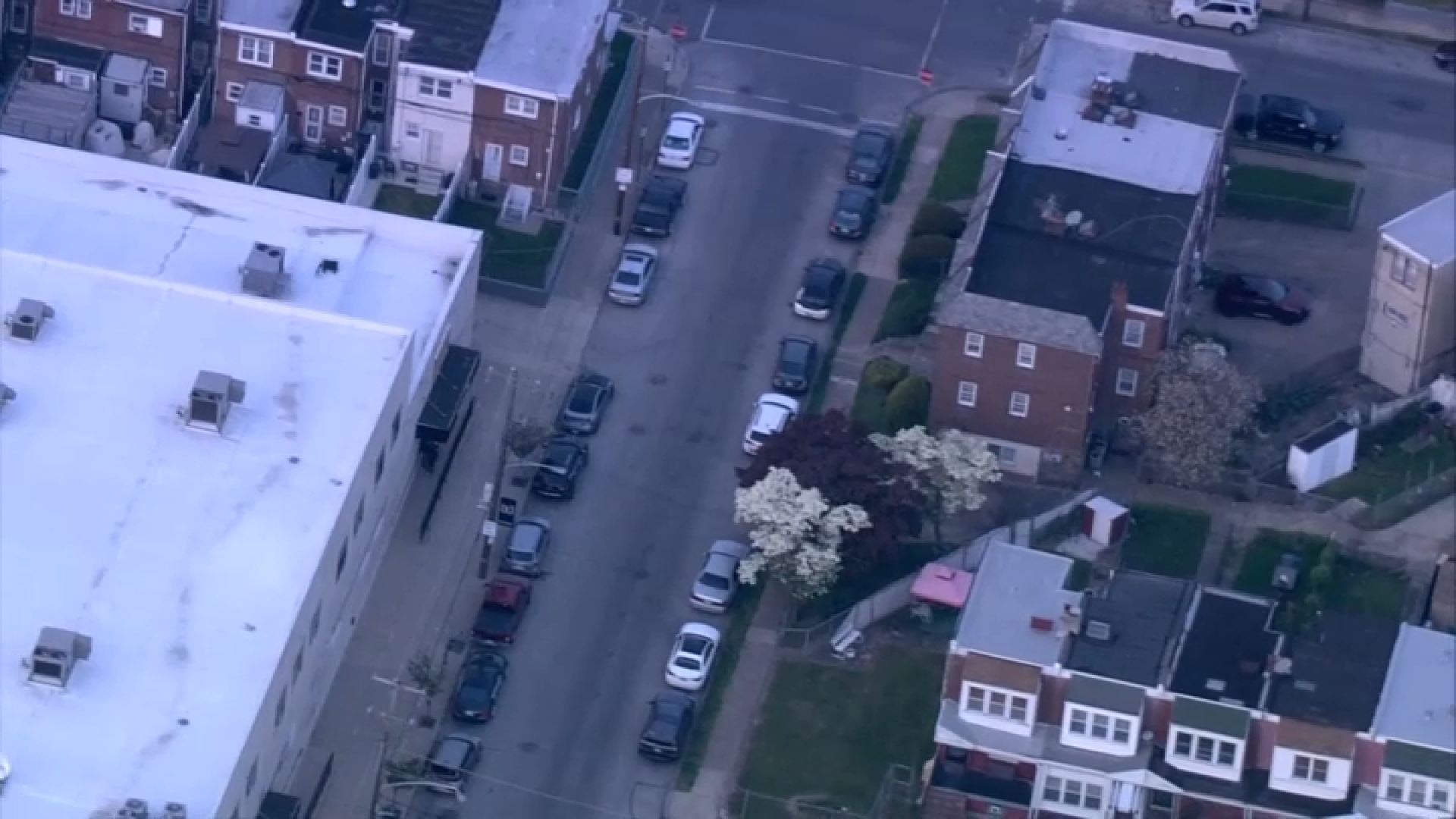He is long past retirement as one of his generation's most renowned cantors, a living link to Eastern European Jewish culture before it was devastated in the Holocaust that claimed much of his family.
Yet Moshe Taube still can fill a living room or a synagogue or a concert hall with his rich, fluid, reverberating voice, conveying a sense of trembling before the divine.
He sings when invited to chant Sabbath prayers at area Orthodox synagogues, or heart-piercing songs of lament at Holocaust remembrance services. In more relaxed settings, he sings classics that that may not be explicitly religious but are poignantly aspirational in their own way, such as "Nessun Dorma" by Puccini or "You'll Never Walk Alone" by Rodgers and Hammerstein.
"I am thankful to the Almighty that at my age I still have my voice," said Rev. Taube, whose title reflects a cantor's status as a member of the clergy.
He spoke in an interview at his Squirrel Hill home, where he sat wearing a casual shirt and simple skullcap.
At his home, he is surrounded by emblems of his life. There is the upright piano where he still accompanies himself on vocal exercises every day. ("There's an English expression: If you don't use it, you lose it," he said.)
On one bookshelf stand bound volumes of the Talmud; on another are boxed CDs of operas by the likes of Berlioz, Donizetti and Mussorgsky.
Local
Breaking news and the stories that matter to your neighborhood.
There are photos of his family, which now extends to 11 grandchildren and 18 great-grandchildren.
One photo shows Moshe Taube as a young teen — around the time of his bar mitzvah in Poland — with his mother and sister. The formality of that black-and-white studio portrait stands in contrast to the imminent catastrophe, as both women perished soon afterward in the Holocaust.
A later photo is emblematic of how Rev. Taube and his father survived. It's a color snapshot showing Rev. Taube and his wife, Helena, with Emilie Schindler during her visit to Pittsburgh in 1994.
Mrs. Schindler, along with her husband, German industrialist Oskar Schindler, helped save the lives of Moshe Taube, his father and more than 1,000 other Jews during the Holocaust, a heroic feat memorialized in the 1993 movie "Schindler's List."
These events are on Rev. Taube's mind constantly, three-quarters of a century later.
Moshe Taube, 90, spends much of his time studying histories of World War II and the Holocaust.
"I can never read enough of it," he said. "I still am at a loss at how it all happened. How was it possible such misfortune, such tragedy should befall my family and my fellow Jews?"
For Rev. Taube, a music scholar who finds transcendent meaning in song, including the great works of German composers, the questions are particularly acute.
"Music is life. Music is life!" he repeated. "Without music there is no life. And they gave life to the world with Brahms and Beethoven and Schumann and Schubert. These people, I know them through their music. I know their humanity and humaneness through these composers."
He questioned "how a nation who gave birth to these people should descend into the hell of hatred, of bestiality. I'm trying to read about it. I'm trying to find out from different people, from different sources. How is it possible?"
He searches memory as well as books for answers.
"All I remember was a blind following, a blind faith, in a maniac. A maniac!" he said, referring to Adolf Hitler.
The Nazis and his followers, he said, were "very receptive, to a brainwash, unfortunately. And that brainwash made them accomplices to the tremendous crime. It's not a crime. It's bestiality. They deprived my family of the right to live."
He added: "Whoever was not blind was afraid not to be blind."
In fact, Rev. Taube has been meditating on both extremes of the human condition, not just its evil depths but its sublime heights.
He spends much of his time listening to music, whether in person or on CD recordings, marveling what the great composers have birthed.
"Without divine inspiration, they wouldn't be able to produce such music," he said. "This is my conviction."
Moshe Taube was born in June 1927 in Krakow, Poland, to music-loving parents whose home was often filled with the sounds of opera and folk tunes. By age 8, he was singing and studying music in the choir of a legendary cantor, Yossele Mandelbaum, who sang so emotively that Rev. Taube still recalls the sobs his singing elicited from the congregation.
He said the music "became a part of me even as a child." He hoped to become like his mentor.
But soon after the German invasion of Poland in 1939, the Nazis rounded him up with his family and other Jews in Krakow's ghetto. In 1942, the Nazis shipped them to concentration camps. He and his father were assigned to a labor camp, separated from his mother and sister, who were sent to their deaths. Dozens in his extended family also were murdered, he said.
"I could not sing between 1939 and 1945," Rev. Taube said. "I couldn't sing because of the atrocities that happened. Singing is an expression of fulfillment, happiness, of worship. I did worship, but not with singing."
From the Plaszow labor camp, his father managed to get the two of them on Oskar Schindler's workforce in a munitions factory in Brunnlitz until the end of the war.
While avoiding the death camps, the workers were still desperately eating grass to survive by the end of the war, Rev. Taube said. He's still grateful to the Russian soldiers who shared their meager rations with them when they liberated them.
"We were mortally starved. Bread was lifesaving, like gold, more than gold," he said. "And they shared their bread."
Later in 1945, when he went to live with a surviving relative in Romania, the music returned.
He still remembers how someone was playing a gramophone that sat on a floor. It was Intermezzo of the opera "Cavalleria Rusticana" by Pietro Mascagni.
"It was the first classical selection I heard after six years of nothing," he said. "It drew me to such a point, people were looking at me. I was on my knees listening to it. I felt like I ate a wonderful meal."
And he recovered his voice.
"It sang out of me," he said. "My voice was singing out of me without my even wanting. I sang because I felt an urge to sing."
Soon he was on the move again, this time toward British-ruled Palestine. He emphasized that he made his way as an "illegal immigrant" and was interned by the British for a time before gaining freedom. In the early years of the state of Israel, once people began to hear his powerful tenor voice, he was recruited regularly to chant at synagogues. In 1957, he came to America to further his music education at the Juilliard School in New York City.
After several years as a cantor in New York, he accepted an offer from Congregation Beth Shalom in Squirrel Hill in 1965, where he remained as cantor for more than 40 years. In addition to singing, he became a prolific composer of Jewish liturgical music.
He maintained strong ties to Israel, where his grandchildren and great-grandchildren live and where his brother, Arie, fought and died in the 1973 Yom Kippur War.
Rabbi Seth Adelson, the current rabbi at Beth Shalom, arrived here years after Rev. Taube's retirement. But he was well aware of the latter's reputation, and hearing him in person "has been a real thrill for me," he said. Rabbi Adelson, who also trained as a cantor, said Rev. Taube's work was part of the curriculum when he studied at Jewish Theological Seminary in New York City.
"He is one of the most prominent cantors in the world," Rabbi Adelson said. "His is a voice of the Old World. He definitely brought what he learned in Europe before the war and created a wonderful body of work."
Julian Elbling, a past president of Beth Shalom, said Rev. Taube was long at the spiritual heart of the congregation, inspiring it particularly when it recovered from a devastating fire.
"When he sings, you would think he had a great connection to the up above," he said.
Even today, Rev. Taube finds his heart lifted by music in the way he did in his Krakow synagogue.
He recounted the performance of Gustav Mahler's "Resurrection" symphony earlier this year by the Pittsburgh Symphony Orchestra and the Mendelssohn Choir of Pittsburgh.
"People went wild after hearing this symphony," he said. "The people were yelling, shouting. I was yelling like everybody else. This was a life experience."
As much as Rev. Taube wrestles with the great questions, he said he has never demanded answers to the question that vexes so many others — where God was during the Holocaust.
"I had abiding faith that whatever God has decreed this was the destiny that we couldn't change," he said. "And we might not understand his ways and his thoughts because we are humans. So therefore I cannot ask God to be human and say, 'What did you do?' He is above humanity. He is the creator of humanity. There are some things we as humans cannot understand because our understanding is limited. Our thoughts are limited.
"Therefore I did not question. I complained. I complained bitterly, but to question 'What did you do, God?' this is not something I felt is proper."



